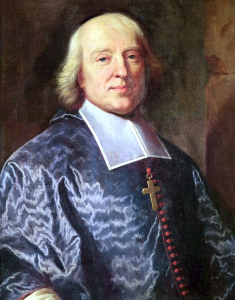 A bit of a round up from last night. We had as our evening speaker, after supper, Andy Crouch. Afterward, a little pack went for adult beverages and discussion of the burning topics of the day.
A bit of a round up from last night. We had as our evening speaker, after supper, Andy Crouch. Afterward, a little pack went for adult beverages and discussion of the burning topics of the day.
This morning it was a pleasure to see at Mass Dr. Peter Kreeft, who will also be giving a couple talks today.
Here is a shot that one of the participants shot from Mass this morning.
The day is yet young, but there is already a high point.
At breakfast a young fellow who is a religion teacher at a Catholic all girls high school told me that, during Lent, he started class each day by playing my podcasts, and, so he related, the girls really liked them. I am left with the amusing image of a class room full of teenage girls listening to Fulton Sheen and Jacques-Bénigne Bossuet.
My first class today is on Religious Liberty and the Challenges of Conscience. I note that Michael Novak is sitting in. We start with Benedict XVI’s statement: “Religious freedom is… an achievement of a sound political and juridical culture.”
UPDATE:
Peter Kreeft is talking now about a paradox: “Are the poor ‘blessed’ if we make them rich?”
What refreshing clarity.
UPDATE
Afternoon session begins to a talk: Distributism: Theory and Critique
After the Distributism lecture, I am back with Peter Kreeft: Truth, Goodness and Beauty in CS Lewis’s Storytelling
UPDATE
Evening events, supper and discussion with Fr Sirico and Ross Douthat.
Nice to sit with Ross at supper. He reads the blog, which is good to know.
Douthat said he had once wanted to be a fantasy novelist. Fr Sirico reposted that Douthat now writes for the New York Times, and the editorial page at that!

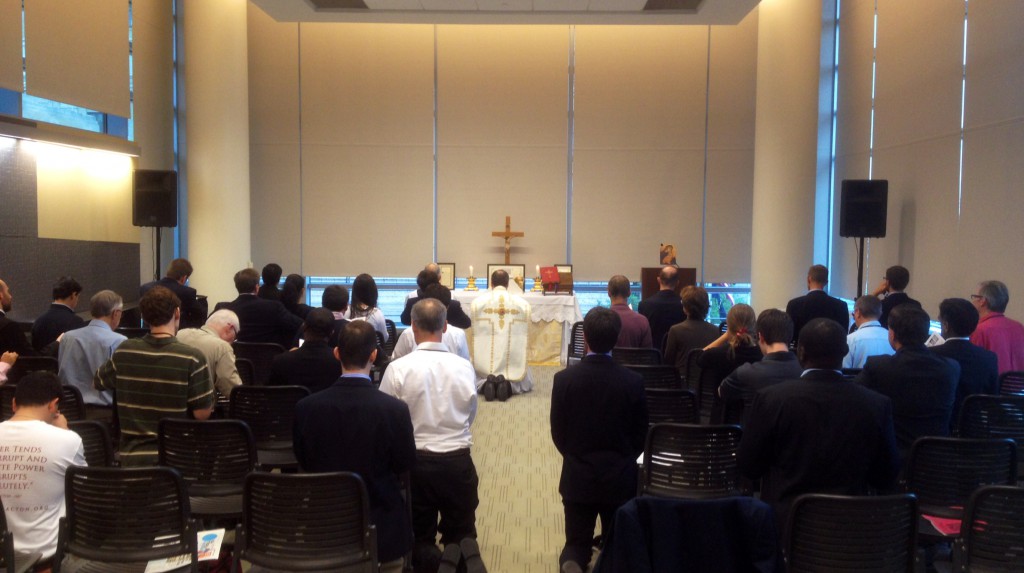
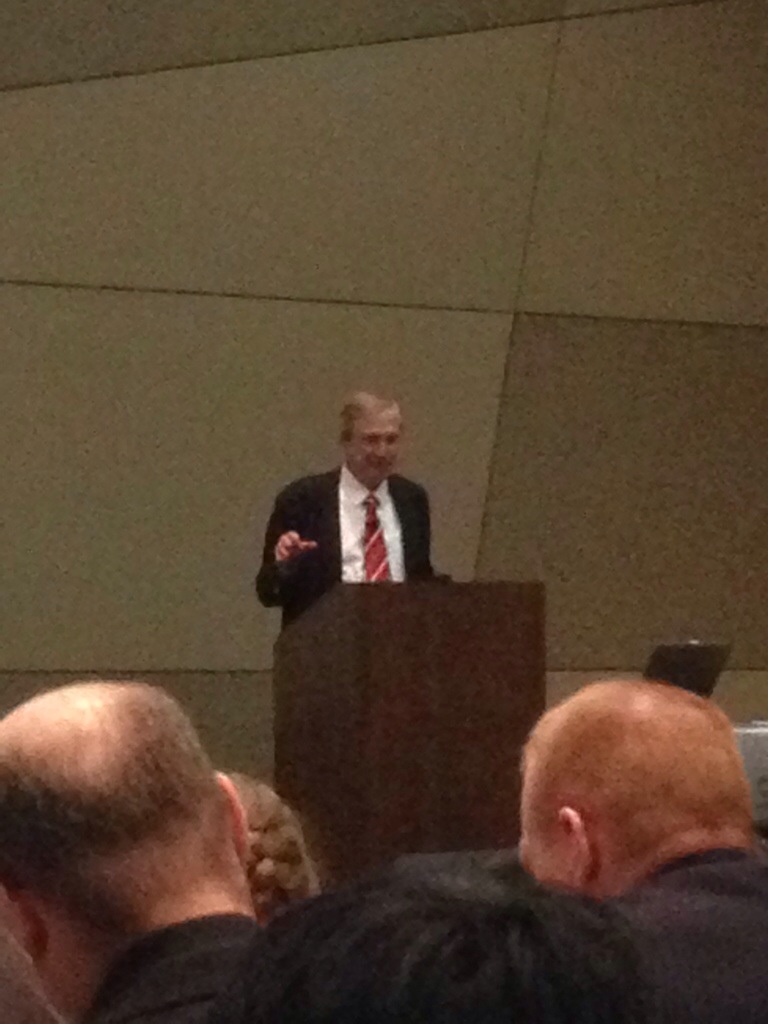
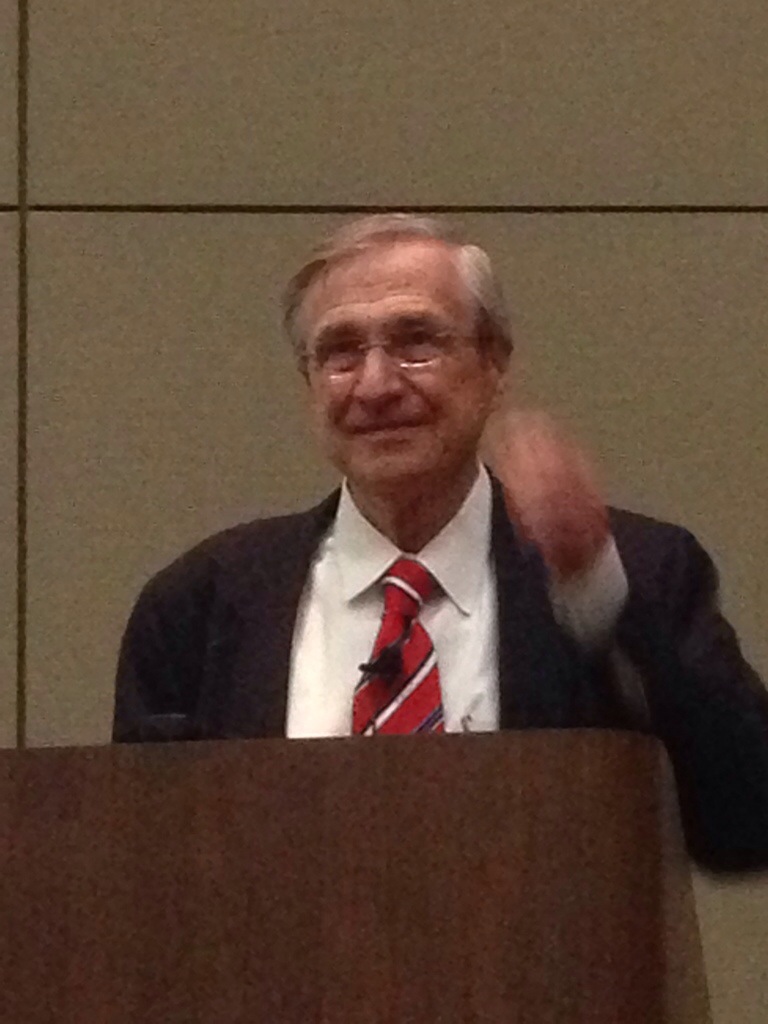
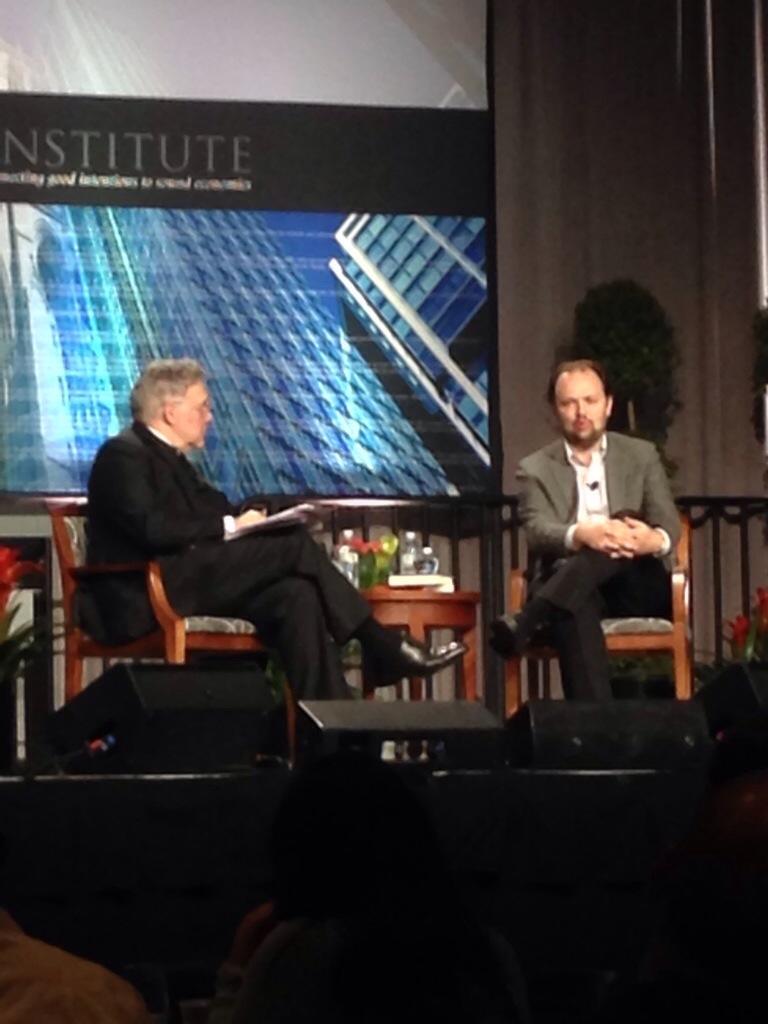
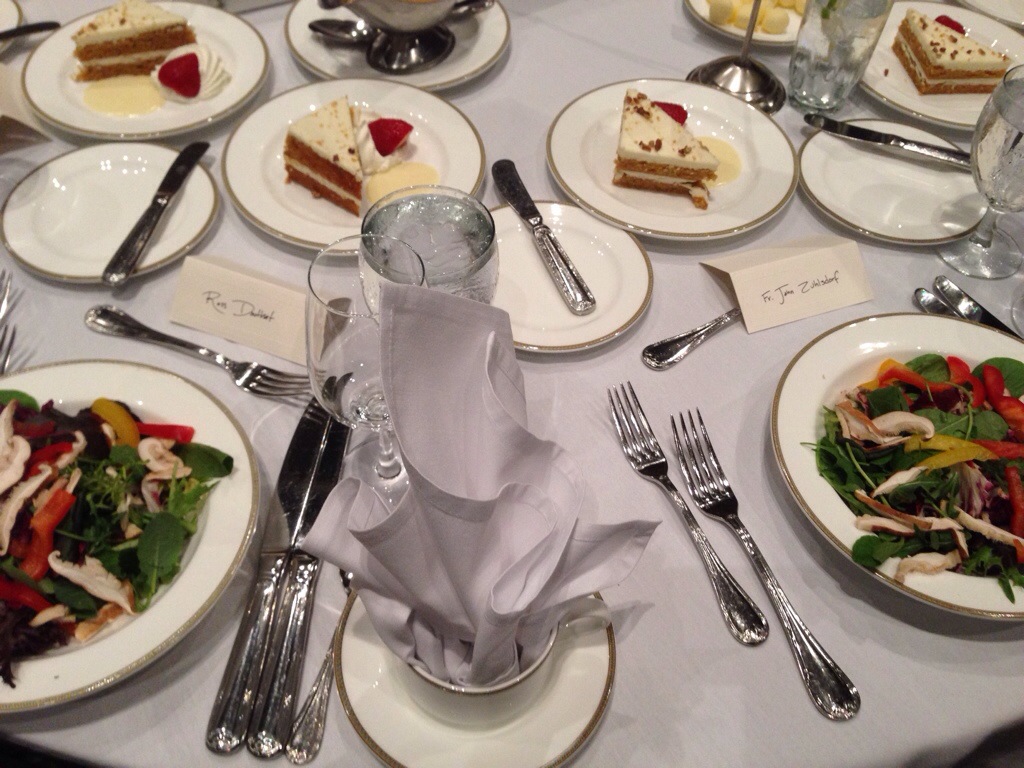
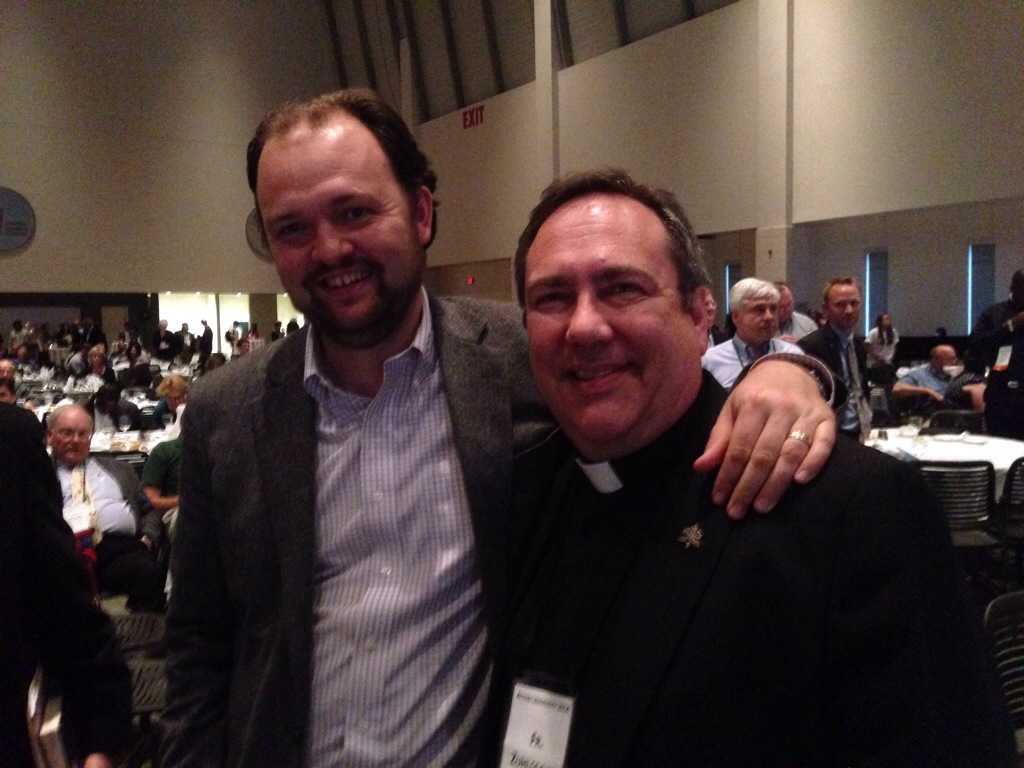
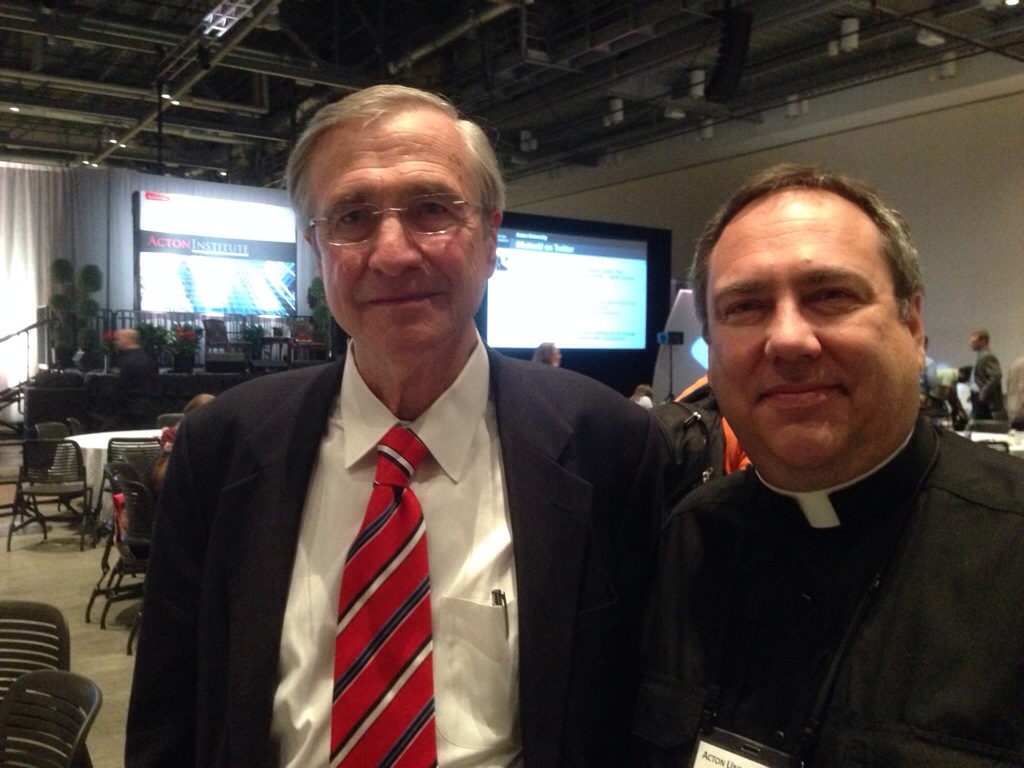

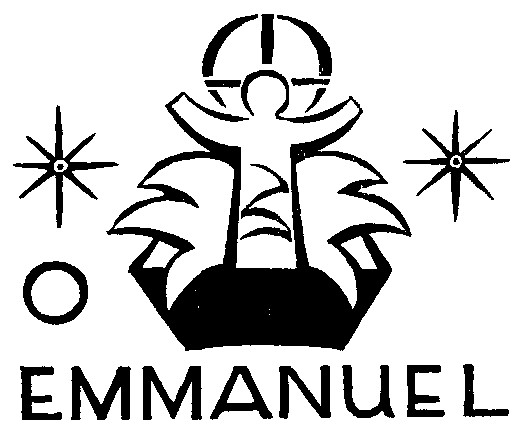





























Did you say a votive Mass today?
God bless that religion teacher.
I must have missed the day in Economics class when taught the definition of “rich”.
Sigh….mea culpa, mea culpa…
As an autodidact in Austrian School economics, I am most curious to know who lectured on distributism.
Pax et bonum,
Keith Töpfer
I just graduated from Boston College last month, and Professor Kreeft was one of my favorite professors during my four years there. I’m going back for my master’s in the fall, and I’ll have him for class again. I can’t wait!
Please share interesting topics or ideas from the conference Fr. Z. I look forward to hearing about some of what you have heard.
Are you going to eat the cake first or the salad?
CJ,
From what I understand, Dr. Kreeft is one of only a few orthodox Catholic professors at BC. Are there others?
acardnal,
Peter Kreeft is a philosophy professor, and the philosophy department has a reputation for being strong in its Catholicity. On the contrary, the theology department’s faculty members tend to be more progressive. Nevertheless, some professors in the theology department are of an orthodox Catholic viewpoint, although fewer than in the philosophy department.
Some BC theologians are members of the Academy of Catholic Theology (ACT), the conservative counterweight to the self-admittedly liberal Catholic Theological Society of America (CTSA). In regard to both of these organizations it is interesting to note that the Vice President of the ACT is from BC (Stephen Brown, a medievalist and long-time BC faculty member) while the President of the CTSA is also from BC (Richard Gaillardetz, an ecclesiologist who once wrote an article for the National Catholic Reporter that was critiqued on this blog by Fr. Z — https://wdtprs.com/2013/02/nsr-making-church-history-up-as-they-go/ ).
BC really is a great place for a theological education. The orthodox faculty members are outnumbered by the progressives, but any industrious student of a more orthodox persuasion, such as myself, can certainly still thrive there. The professors with whom I had intellectual disagreements were always open to hearing my perspective, and our disagreements never had a negative impact on my grades. My education was enriched by interacting with each professor, no matter their sympathies.
I’ll conclude this little summary of BC professors with a funny anecdote involving Professor Kreeft. I went to his office hours one time when I was a sophomore, and in the course of our conversation, mention was made of one of my theology professors, Margaret Schatkin who is a patristics scholar. She and Kreeft have been colleagues for many years; he arrived at BC in 1965, and she arrived in 1969. Professor Schatkin is known on campus as the most conservative member of the theology faculty and is considered by many to be “more Catholic than the Pope,” as the saying goes, despite the fact that she is not even Catholic. She is a member of the Lutheran Church-Missouri Synod.
Of her, Kreeft said the following: “When people ask me how Catholic the BC theology department is, I always tell them the same thing — ‘There’s only one real Catholic on the faculty…….and she’s a Lutheran.'” He had a big smile on his face after he said it, and I laughed. Then he said to me, “And you can tell Maggie I said that,” which I did the next time that I was in her office. She found it very funny, and she appreciated his sentiment.
Thanks for your comments CJ.
C.S. Lewis!!!!!!!!!!!!!
Well,
He’s a huge part of the reason I’m here. :)
I’ve read the Chronicles of Narnia 9 times through.
As a teenager not even practicing my faith.
Yeah.
:)
Very interesting insight CJ. Thank you.
CJ says,
In regard to both of these organizations it is interesting to note that the Vice President of the ACT is from BC (Stephen Brown, a medievalist and long-time BC faculty member) while the President of the CTSA is also from BC (Richard Gaillardetz, an ecclesiologist who once wrote an article for the National Catholic Reporter that was critiqued on this blog by Fr. Z
I met Stephen Brown some years ago in Rome when he stayed at the residence where I was living, Convitto San Tommaso. Good man, educated, if I remember correctly, in Louvain.
Some years ago I read an article by Gaillardetz on the Ordinary Universal Magisterium that had been published in 2002 in Theological Studies. I completely agreed with his conclusion: He said that when Lumen Gentium expands the authority of the OUM, it is in fact an expansion of Papal authority. The only difference is that he thinks that is terrible, but I love it.
As in most articles of that breed, it turns out to be aimed at specific teachings–contraception, homosexuality, and the ordination of women.
I have been mulling over the statement in one of the comments above, relating that a certain college is “a great place for a theological education”, because the avowedly non-orthodox professors, who are in the majority, are “open to hearing” the perspectives of those students who are both industrious and orthodox in their Catholic faith. Such a student may even get good grades.
Why does this situation perplex me? Perhaps because the student is content to get good grades, and to receive a benign “hearing” from professors who openly dissent from the faith. It sounds like a “tolerable” place, rather than a “great” place, for the study of Catholic theology.
How would St. Irenaeus fare at such a place of study? He wrote in Adversus Haereses:
There are also those who heard from him that John, the disciple of the Lord, going to bathe at Ephesus, and perceiving Cerinthus within, rushed out of the bath-house without bathing, exclaiming, “Let us fly, lest even the bath-house fall down, because Cerinthus, the enemy of the truth, is within.” And Polycarp himself replied to Marcion, who met him on one occasion, and said, “Dost thou know me? “I do know thee, the first-born of Satan.” Such was the horror which the apostles and their disciples had against holding even verbal communication with any corrupters of the truth; as Paul also says, “A man that is an heretic, after the first and second admonition, reject; knowing that he that is such is subverted, and sinneth, being condemned of himself.”